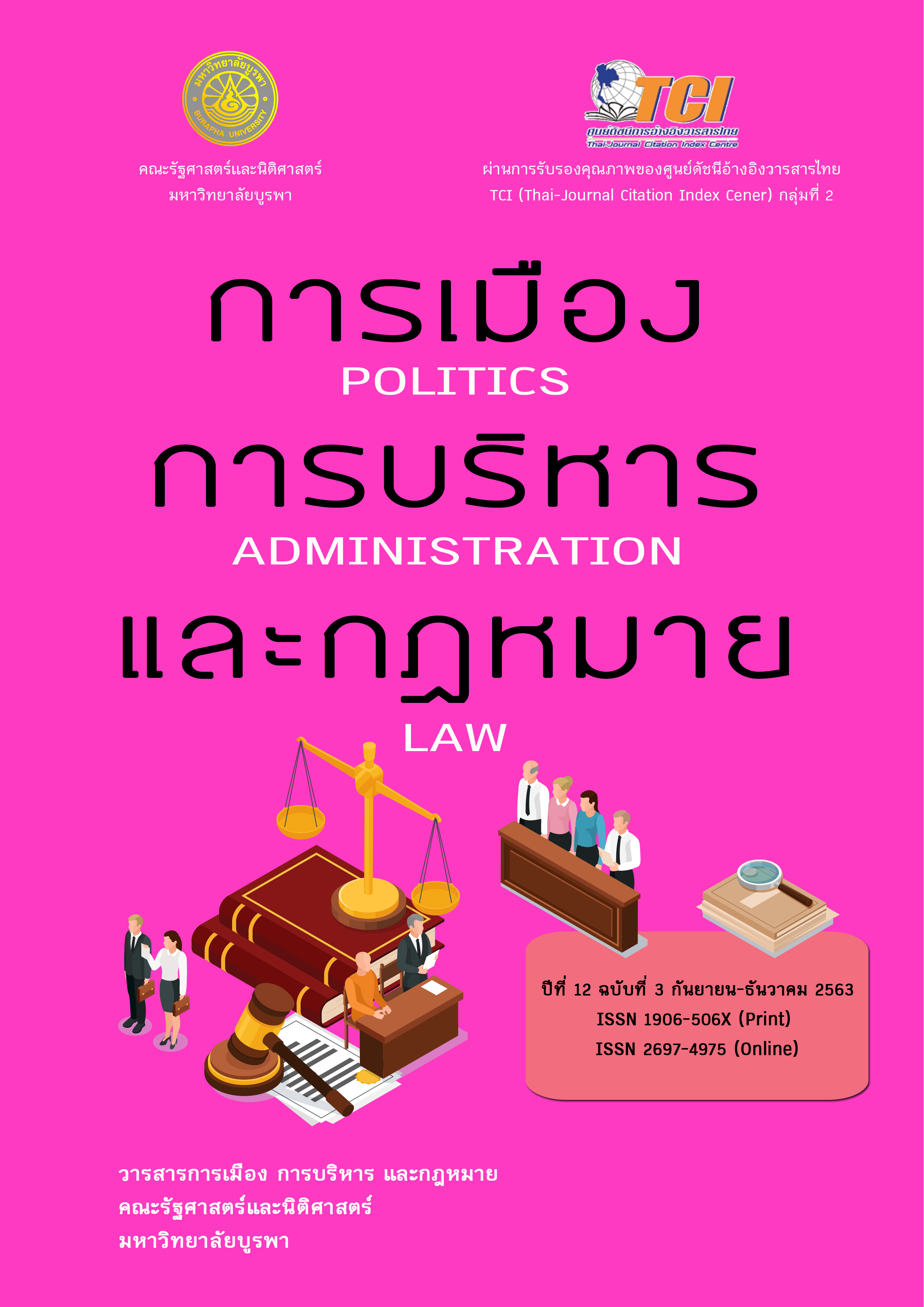การพัฒนาโปรแกรมกระบวนการเสริมสร้างศักยภาพการจัดการตนเองของผู้สูงอายุในสาขานายหน้าอสังหาริมทรัพย์
คำสำคัญ:
นายหน้าอสังหาริมทรัพย์, ผู้สูงอายุ, การจัดการตนเองบทคัดย่อ
การวิจัยมีวัตถุประสงค์เพื่อ 1) เพื่อศึกษาแนวโน้มองค์ประกอบของการเป็นนายหน้าอสังหาริมทรัพย์ของผู้สูงอายุ ที่จะนำไปสู่การจัดการตนเอง และ 2) เพื่อศึกษาแนวทางในการพัฒนาโปรแกรมกระบวนการเสริมสร้างศักยภาพการจัดการตนเองของผู้สูงอายุ ในสาขานายหน้าอสังหาริมทรัพย์ โดยงานวิจัยและพัฒนาเป็นแบบผสมผสานด้วยวิธี 1) การวิจัยเชิงคุณภาพเพื่อตรวจสอบกรอบแนวคิดทฤษฎี ด้วยการวิจัยประยุกต์ใช้เทคนิคการวิจัยแบบอนาคตภาพ (Ethnographic Delphi Futures : EDFR) รอบที่ 1 และรอบที่ 2 รวม 17 คน จากนายหน้าอสังหาริมทรัพย์ 2) การวิจัยเชิงปริมาณ การวิเคราะห์ด้วย เทคนิคลำดับชั้นเชิงวิเคราะห์ (Analytic Hierarchy Process : AHP) ผลการวิจัยพบว่า ผลการวิจัยพบว่า องค์ประกอบของโปรแกรมกระบวนการเสริมสร้างศักยภาพการจัดการตนเองของผู้สูงอายุ ในสาขานายหน้าอสังหาริมทรัพย์มี 7 องค์ประกอบหลัก (KANSEAN) คือ ความรู้นายหน้าอสังหาริมทรัพย์ การเจรจาอย่างมีเป้าหมาย การมีเครือข่ายและการประสานงาน การมีทัศนคติที่ดี คุณธรรมจริยธรรม พฤฒพลัง และการจัดการ และผลจากการวิเคราะห์ด้วยเทคนิคลำดับชั้นเชิงวิเคราะห์ (AHP) องค์ประกอบหลักทุกองค์ประกอบมีความสอดคล้องกัน และองค์ประกอบด้านคุณธรรมจริยธรรม ผู้เชี่ยวชาญให้มีน้ำหนักความสำคัญมากที่สุด
เอกสารอ้างอิง
Lorig, K. R., & Holman, H. R. (2003). Self-management education: history, definition, outcomes, and mechanisms. Annals of behavioral medicine, 26(1), 1-7.
Havighurst, R. J. (1963). Successful aging. Processes of aging: Social and psychological perspectives, 1, 299-320.
Robin, E. (2018). Performing real estate value (s) : Real estate developers, systems of expertise and the production of space. Geoforum, April(2018). 1-11.
Rosenberg, M. (1979). Conceiving the Self. New York: Basic Books.
Saaty, T. L., & Vargas, L. G. (2012). The seven pillars of the analytic hierarchy process. In Models, methods, concepts & applications of the analytic hierarchy process (pp. 23-40). Boston, MA: Springer.
Sharit, J., & Czaja, S. J. (1999). Performance of a computer-based troubleshooting task in the banking industry: Examining the effects of age, task experience, and cognitive abilities. International Journal of Cognitive Ergonomics, 3(1), 1-22.
Thanakwang, K. & Soonthorndhada, K. (2006). Attributes of active ageing among older persons in Thailand: evidence from the 2002 survey. Asia-Pacific Population Journal, 21(3), 113-135.
Wilkinson, S., & Reed, R. (2008). Property Development. Oxford shire: Routledge.
World Health Organization. (2002). Active Ageing: A Policy Framework. Geneva: World Health Organization.






